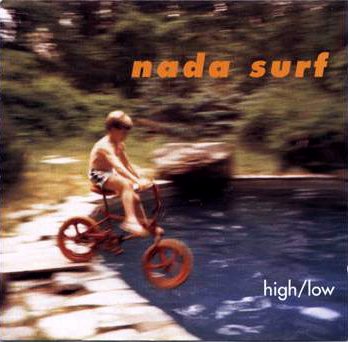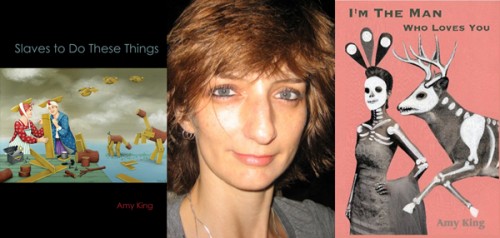YOU’VE GOT MAIL: Briefly Meet & Greet the Corresponding Society
I am giving a reading tonight with Joanna Smith Rakoff at Oblong Books, in (presumably) scenic Rhinebeck, NY. So I was trying to figure out which train to take there (Amtrak) and then how to get from the train station to the actual town/store–but then I got bored and figured I’ll deal with it when I get there. Which I will–or won’t, I guess. Anyway.
Last night I went to the KGB Bar to hit up the issue #3 launch reading of Correspondence, the journal of The Corresponding Society, itself the love-brain-child of Lonely Christopher, whose forthcoming Little House on the Bowery story collection (The Mechanics of Homosexual Intercourse; February 2011) I am very, very excited about. I first saw Lonely Christopher give a delightfully bizarre and divisive reading a couple years ago in the living room of founding Small Anchoress Jen Hyde; he read with Joshua Cohen, Mathias Svalina, and Joshua Furst, Small Anchor authors one and all. Anyway, last night’s reading featured Christian Hawkey, Jenny Stohlmann, A.E. Wilson, Jody Buchman, Ben Fama, Adrian Shirk, and LC himself, all of whom have work in the new issue. You heard it here first, kids: these guys are onto something. I can’t remember the last time I sat through a seven-reader poetry+fiction reading and wasn’t bored for a minute. Plunking down my ten bucks for a copy of Correspondence #3 was almost certainly the most fun thing I spent money on yesterday, and yesterday I had a great Vietnamese noodle soup and also several alcoholic beverages. But this was better. You should give their blog a look, and generally speaking keep them on your radar. They’re certainly on mine. Oh, and a hearty hat tip to Jeremy Schmall, who not only told me about the reading but convinced me to get my ass out of the house and actually go to it. Brother!
Okay, now I need to get back to figuring life (ie trains) out, but since the banjo tunes from yesterday seemed to be well-received (by one guy anyway) I leave you with this video of Pete Seeger and his grandson, Tao Rodriguez-Seeger, singing one of my (and, apparently, Tao’s too) favorite Seeger originals- “Well May the World Go.” I’ve been pretty much obsessed with the version of this song that appears on the New Lost City Ramblers 20th Anniversary Concert album, and while this clip doesn’t quite have the heft of that version (there’s really nothing quite like Seeger when he gets his street-preacher shoes on) it’s pretty cool for a whole host of other reasons which I will allow it to disclose to you as you watch.
httpv://www.youtube.com/watch?v=SHDI7Yw0AkU
March 11th, 2010 / 11:06 am
From the “Can You Believe This Shit?” files
 I just read on MobyLives that the American Book Review has just released their Top 40 Bad Books list. To which, I can only say, Um, really? Ok, I can say a little more than that.
I just read on MobyLives that the American Book Review has just released their Top 40 Bad Books list. To which, I can only say, Um, really? Ok, I can say a little more than that.
First of all, can a publication be crying for attention any more than this? No? Ok, good. I didn’t think so. So here’s your attention, American Book Review. Hi. Here it is. Here you go. Moving on.
Secondly, I forgive you, American Book Review. It’s ok. Sometimes I read a book and I don’t enjoy it as much as I wanted to, because every time I open a book I am looking for enjoyment. I may even call that book bad, but if I give it a second thought I soon realize that my opinion came out of a particular set of circumstances that is called my brain. And my brain is a very particular machine. It is not a literary-award-distributing-machine. It’s just a brain that likes to be entertained in the particular way that it finds entertaining. In fact, no brain is a literary-award-distributing-machine. The best book reviews are neither advertisements nor tossed rotten tomatoes. The best book reviewers show the reader what it was like to experience the book in question if you happen to be the one writing the book review. Nothing more. Nothing less.
We all know this. Certainly we all know this.
So, what is the point of collecting 40 book reviews that 40 distinguished book reviewers hate?
I am not sure. Maybe they just need a hug.
Or maybe there is more going on here under the surface? Someone? Anyone? Can a book really be categorically bad?
March 11th, 2010 / 3:50 am
Bookstore Interview: Pilot Books, Seattle
 I have done a couple interviews with booksellers that I’ll be putting up over the next weeks. I guess I get interested in stores that contact me to buy books. That indicates how hardworking they must be, and how smart, and how invested they are in the indie lit scene. I think it’s great.
I have done a couple interviews with booksellers that I’ll be putting up over the next weeks. I guess I get interested in stores that contact me to buy books. That indicates how hardworking they must be, and how smart, and how invested they are in the indie lit scene. I think it’s great.
This first installment is with Summer Robinson, who founded Pilot Books in Seattle. She’s a writer, a professional copywriter full time, and so aware of the indie lit scene that she says it’s easy to keep on top of what’s happening. And she doesn’t just stay current; as a dedicated bookseller she’s filling one the most important roles for publishing. I think it’s great and inspiring.
Email interview after the break. READ MORE >
March 10th, 2010 / 8:14 pm
1. David Peak talks with Sam Pink. Another clarifying prism.
2. A Field Guide to Occurrences of Bernini’s Ecstasy of St. Teresa in Infinite Jest
3. I may have mentioned this already, but I’ll mention it again: Dear Everybody–a brutal and gorgeous book–is now available in paperback. Or buy it from Powell’s.
powerHouse Gets Random (House’d)

Here’s a piece of industry news. Brooklyn-based powerHouse Books (a publisher of visual arts books, as well as a bookstore/event space) is “going to Random House,” according to a press release I just got from them. The letter begins, “Dear powerHouse follower– You are, with any luck, a retailer, a reviewer, a promoter, or just someone vigorously involved in the visual arts…” Well, yes and no, but I am a guy with an INBOX, and apparently, plenty of free time on a Wednesday. The full announcement is copied below.
Corey Haim (RIP) on artistic ambition
httpv://www.youtube.com/watch?v=WLRK-XP_GLE
The direction in my life right now that I’m trying to I guess proceed with in the business is gradually from being the little boy, from the younger, you know, brother, trying to get to be the older brother or the only brother.
And who doesn’t feel that? Me, certainly. Why did Tao Lin start Muumuu House? Older brother. Year of the Liquidator? Older brother.
At what point did you decide you wanted to be the “older brother”? (And I apologize for the maleness of the metaphor. I would like sisters to answer, too.) Have you decided yet?
How about a rousing game of literary-cultural high-low?

[NOTE: Guess which are which.]
“The Bubble and The Globe” – Joshua Clover on John Ashbery’s Planisphere as a chronicle of the financial collapse at The Nation.
Ashbery is heroically free of the world-was-better-when-my-body-was-younger piffle that mars some of his well-known contemporaries. Instead we have the sense of the poet (and us with him) being always inside time, suspended within it as within some queer medium (an entirely proprietary substance, one part limestone and two parts prosecco). There is no lyrical leap to ecstasy, to someplace beyond the capacious Ashberian land. Time itself is the worldly country, and there is no other.
Part two of Melissa Broder’s two-part series on twitter as a strange attractor in the writer’s life is now live. In Part 1 she spoke to poets, including Ron Silliman, Amy King, Tao Lin, and Reb Livingston. In Part 1.5 she spoke at some length with Brandon Scott Gorell. Now, in Part 2, she speaks to prose-writers, Kevin Sampsell, Dara Horn, Fiona Maazel, our own Blake Butler and Matthew Simmons, and yours truly.
Fiona Maazel: Twitter? What the hell is that? I, Neanderthal.
“Carded” – William Deresiewicz amply disgusted with the packaging of Nabokov’s Original of Laura at The New Republic.
The cards are perforated and, as Dmitri says in a note, “can be removed and rearranged, as the author likely did when he was writing the novel.” I’ll get back to the second half of that statement, a claim both strategic and semi-dubious (not to mention ungrammatical). The first breaks new ground in editorial chutzpah, inviting us to play a kind of Nabokov: Rock Band–the novel as theme park. One can only imagine what dear old dad–the ultimate artistic control freak, not to mention one of the all-time snobs–would have thought of the idea of letting his readers re-arrange his scraps and chapters at will.
And Boing Boing introduces us to Jake Adelstein, the American Jew who relocated to Japan and became the toughest reporter on the yakuza beat. Adelstein, author of Tokyo Vice, will be collaborating with Boing Boing over the next two months, to bring out a series of exclusive stories about the yakuza. Which we’ll have our eye on, no doubt, but in the meantime they kick things off with an interview.
Do you worry about your family?
I have a guarantee from someone up high in the Yamaguchi-gumi that they won’t touch my family. Their word is pretty solid. It’s a gentleman’s agreement that they’ll only kill me, which makes me feel better.
Thought Experiments
If you had to go to a party dressed as the last animal you killed, what would you go as? I’d probably go as a newt, or if that newt didn’t die, then I’d be a fruit fly. Schrödinger either would or wouldn’t be a cat, depending on something random.
At least one person has said that much of modern physics is built on thought experiments. Einstein’s thought experiment about chasing a light beam got him to his theory of relativity.
Do you use thought experiments, or something like them, in your writing? Or, another way: how do you make environments using language?
P.S. It isn’t new, but check out “Keats in Space” by Molly Young for a discussion of the fusion of poetry and science. Also, Natalie’s poem “Water Experiment” and the discussion that follows gives you some poetry and science.
I Like Amy King A Lot

Amy King is the author of I’m the Man Who Loves You, Antidotes for an Alibi, and Slaves to Do These Things (Blazevox Books), The People Instruments (Pavement Saw Press), Kiss Me With the Mouth of Your Country (Dusie Press), and I Want to Make You Safe (forthcoming, Litmus Press).
She was kind enough to take some time to answer some question about her work in an epic interview that is, if I may say so, well worth the read.
Monoculture Culture
In her essay “Points of Pressure,” Caroline Bergvall writes:
For many bicultural artists and writers, the processes of identity and of writing acquisition go hand in hand with aspects of cultural belonging and the way this articulates their lived body and speaking voice. When the writer’s cultural and social body accommodates two or three languages and/or cultures, their inscriptive narratives and poetics are necessarily at a break from a monolingual textual body-type and a nationally defined writing culture. It is often accompanied by a propensity towards open-forms and mixed genres, remains dubious and questioning of defining terms, can be resistant of exile or immigrant narratives and their inward longing for a traditionalist past where identities are firmly locked in place, rather than in play.

